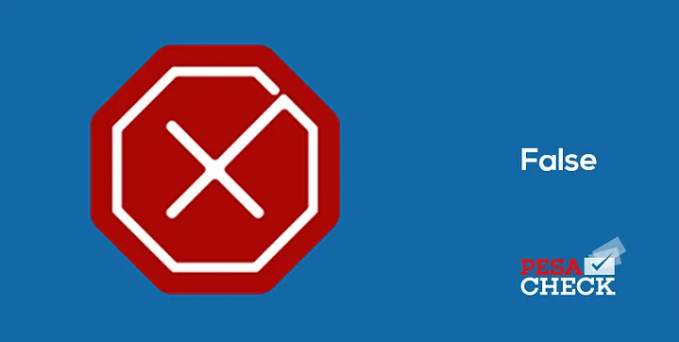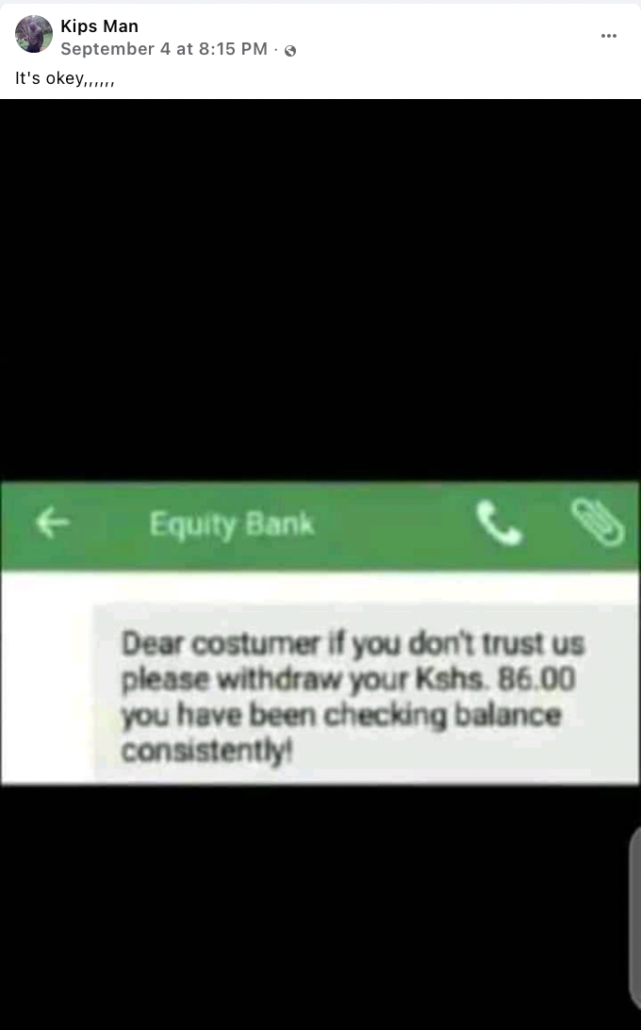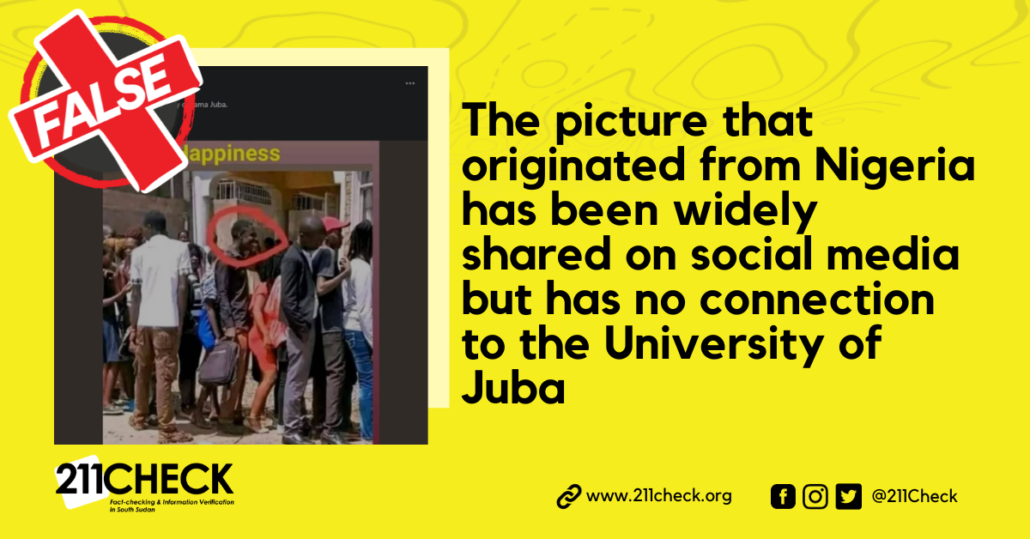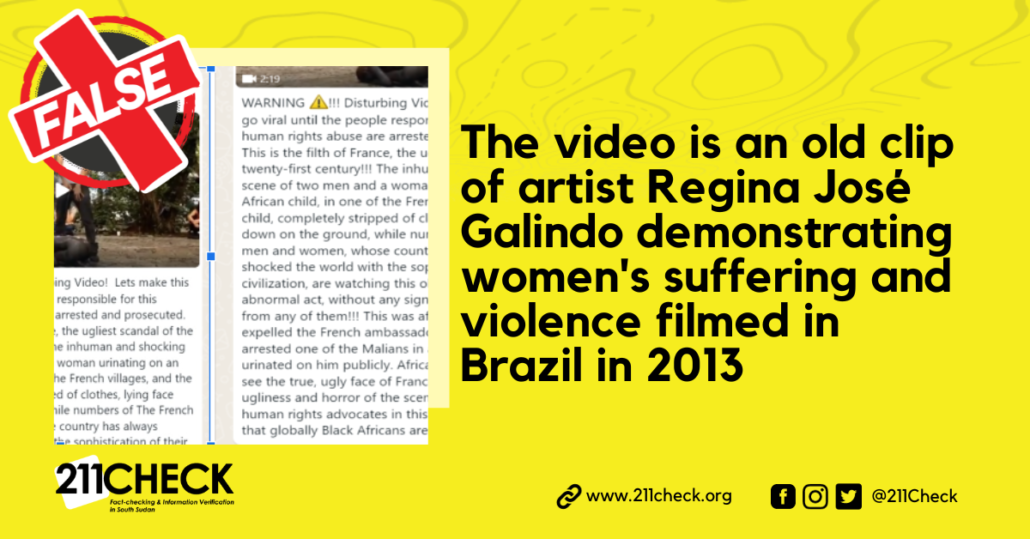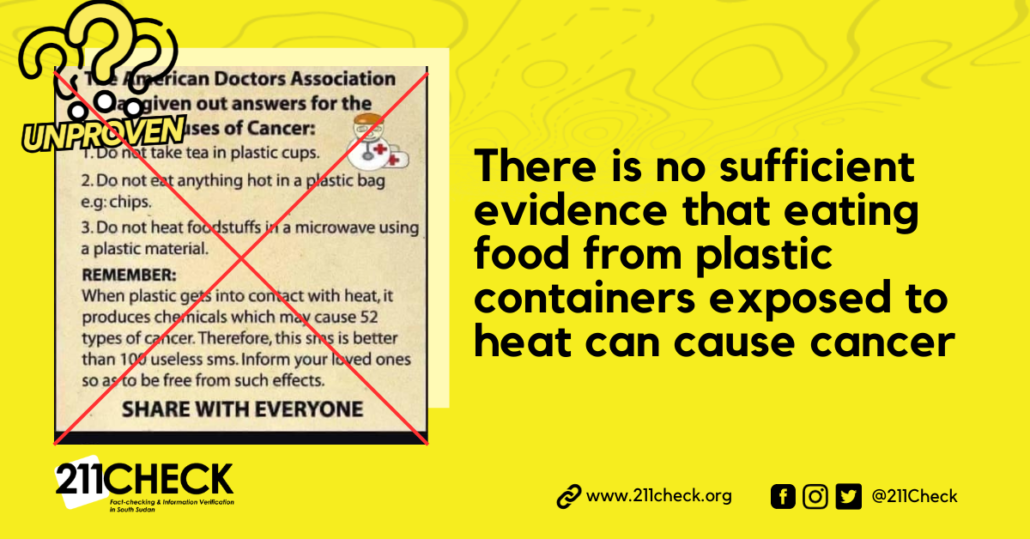Fact-check: This photo is not of NCP defector Anthony Feremato
The featured image used by the Number One Citizen Newspaper is of Fermo Peter Isara, former Torit County Commissioner
Writer: Theophilous Ochang Andrew
A featured news article image by the Number One Citizen Daily Newspaper allegedly of Anthony Feremato Jacob is false.
The photo used in a story titled “Senior NCP member joins SPLM”, published on September 4, 2023, was meant to depict Anthony Feremato, a former chairperson of the National Congress Party in Eastern Equatoria State (EES) who is said to have switched to the Sudan People’s Liberation Movement as reported by The City Review, The Radio Community, and the Number One Citizen Daily Newspaper.
A screenshot of the featured image as it appears on the Number One Citizen Newspaper website
Claim Verification:
A Google reverse image search returns results of the same image published by Radio Tamazuj on 9 August 2018. It is of Fermo Peter Isara, former Torit County Commissioner in South Sudan’s Eastern Equatoria State.
Screenshot of the featured image as used by Radio Tamazuj on 9 August 2018
A keyword search using “fermo peter isara, torit county commissioner” also returned the same and similar images confirming the Google reverse image search findings.
Similar images of Fermo Peter Isara
The Radio Community, an independent network of community radio stations in South Sudan, published the same story titled, “Anthony Feremato joins SPLM,” with his actual photo.
A screenshot showing Anthony Feremato’s photo as published by The Radio Community
Similar pictures of Anthony Feremato were shared with 211 Check via messenger by Sisto Ohide who works at the Torit SPLM secretariat as the reporter for the state-run Radio 97.5 FM.
Photos of Anthony Feremato, former National Congress Party chairperson in EES
Conclusion:
211 Check finds the featured image of a news story allegedly of Anthony Feremato, former National Congress Party chairperson in Eastern Equatoria State, false. The featured image used by the Number One Citizen Daily Newspaper is of Fermo Peter Isara, former Torit County Commissioner.
A publication under 211 Check’s ‘Fact-check for a pay’ Initiative with Support from the International Fact-checking Network through the BUILD grant.
To ensure accuracy and transparency, we at 211 Check welcome corrections from our readers. If you spot an error in this article, please request a correction using this form. Our team will review your request and make the necessary corrections immediately, if any.
It’s vital to fight misinformation and disinformation in the media by avoiding fake news. Don’t share content you’re uncertain about. False information can harm and mislead people, risking their lives—Fact-check before sharing. For more details, visit https://211check.org/ or message us on WhatsApp at +211 917 298 255. #FactsMatter



